第82章
Caesar, who was also thirsty, ordered the man to bring two glasses.
By a curious coincidence, the butler had just gone back to the Vatican to fetch some magnificent peaches that had been sent that very day to the pope, but which had been forgotten when he came here;so the valet went to the under butler, saying that His Holiness and Monsignors the Duke of Romagna were thirsty and asking for a drink.
The under butler, seeing two bottles of wine set apart, and having heard that this wine was reserved for the pope, took one, and telling the valet to bring two glasses on a tray, poured out this wine, which both drank, little thinking that it was what they had themselves prepared to poison their guests.
Meanwhile Caraffa hurried to the Vatican, and, as he knew the palace well, went up to the pope's bedroom, a light in his hand and attended by no servant.As he turned round a corridor a puff of wind blew out his lamp; still, as he knew the way, he went on, thinking there was no need of seeing to find the object he was in search of; but as he entered the room he recoiled a step, with a cry of terror: he beheld a ghastly apparition; it seemed that there before his eyes, in the middle of the room, between the door and the cabinet which held the medallion, Alexander VI, motionless and livid, was lying on a bier at whose four corners there burned four torches.The cardinal stood still for a moment, his eyes fixed, and his hair standing on end, without strength to move either backward or forward; then thinking it was all a trick of fancy or an apparition of the devil's making, he made the sign of the cross, invoking God's holy name; all instantly vanished, torches, bier, and corpse, and the seeming mortuary, chamber was once more in darkness.
Then Cardinal Caraffa, who has himself recorded this strange event, and who was afterwards Pope Paul IV, entered baldly, and though an icy sweat ran dawn his brow, he went straight to the cabinet, and in the drawer indicated found the gold chain and the medallion, took them, and hastily went out to give them to the pope.He found supper served, the guests arrived, and His Holiness ready to take his 3I7place at table; as soon as the cardinal was in sight, His Holiness, who was very pale, made one step towards him; Caraffa doubled his pace, and handed the medallion to him; but as the pope stretched forth his arm to take it, he fell back with a cry, instantly followed by violent convulsions: an instant later, as he advanced to render his father assistance, Caesar was similarly seized; the effect of the poison had been more rapid than usual, for Caesar had doubled the dose,,and there is little doubt that their heated condition increased its activity.
The two stricken men were carried side by side to the Vatican, where each was taken to his own rooms: from that moment they never met again.
As soon as he reached his bed, the pope was seized with a violent fever, which did not give way to emetics or to bleeding; almost immediately it became necessary to administer the last sacraments of the Church; but his admirable bodily constitution, which seemed to have defied old age, was strong enough to fight eight days with death; at last, after a week of mortal agony, he died, without once uttering the name of Caesar or Lucrezia, who were the two poles around which had turned all his affections and all his crimes.His age was seventy-two, and he had reigned eleven years.
Caesar, perhaps because he had taken less of the fatal beverage, perhaps because the strength of his youth overcame the strength of the poison, or maybe, as some say, because when he reached his own rooms he had swallowed an antidote known only to himself, was not so prostrated as to lose sight for a moment of the terrible position he was in: he summoned his faithful Michelotto, with those he could best count on among his men, and disposed this band in the various rooms that led to his own, ordering the chief never to leave the foot of his bed, but to sleep lying on a rug, his hand upon the handle of his sward.
The treatment had been the same for Caesar as for the pope, but in addition to bleeding and emetics strange baths were added, which Caesar had himself asked for, having heard that in a similar case they had once cured Ladislaus, King of Naples.Four posts, strongly welded to the floor and ceiling, were set up in his room, like the machines at which farriers shoe horses; every day a bull was brought in, turned over on his back and tied by his four legs to the four posts; then, when he was thus fixed, a cut was made in his belly a foot and a half long, through which the intestines were drawn out;then Caesar slipped into this living bath of blood: when the bull was dead, Caesar was taken out and rolled up in burning hot blankets, where, after copious perspirations, he almost always felt some sort of relief.